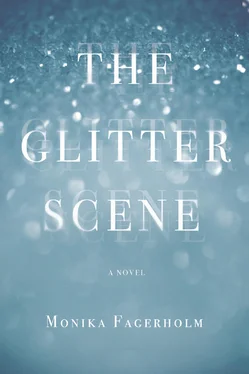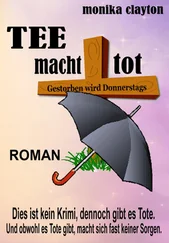Not to mention that Maj-Gun is going to give her brother a portion of this “loose money,” including a share of the revenue from the aunt’s home in Portugal when she sells it a few years later.
But Maj-Gun Maalamaa is going to become respectable . A word she quickly learns to master during her law studies, which she starts a year and a half after her aunt’s passing and finishes brilliantly and quickly, with family law, inheritance law, and the like as her areas of specialization. And she finds daily use for it during those years after graduation when she works as a family lawyer at a distinguished law firm in the city by the sea.
But financially independent, djeessuss . It will provide her with a certain freedom—and space. She will have many rooms, rooms upon rooms upon rooms. Will not have to live in an apartment, never live in an apartment again.
•
“Susette, wait!”
But, still, at the cemetery, the burial: the wooden lid and the flowers, the wreaths, a sea, the ribbons: “wonderful is short,” “a final farewell.” One thing, the most important.
Maj-Gun in a red coat, like a stoplight alone by the grave, she has stayed behind. A few others, a couple, also dawdling on the gravel path. Susette and Tom.
“Wait! Susette!”
Susette obeys, turns around, hesitates.
Tom Maalamaa one step ahead of his fiancée, scarf flapping in the wind, also stops, looks back. Susette says something to him, speaks softly, he shrugs, waves to Maj-Gun “so long”; they are going to see each other at the reception. Removes himself with determined steps, perhaps a bit relieved.
Maj-Gun and Susette. Susette on the gravel path, Maj-Gun who walks up to her. And again: how long ago . The newsstand, all the stories, an apartment, a cat. Susette, to life—an invitation , shoulder pad wearing, in smoke, at a disco. Susette now: her big eyes, eyelashes covered with mascara, but only a bit, and on her full lips, a little lipstick, coral colored, “discreet.” In nice clothes. Gray winter coat, ankle boots, dark gray suede, heels just the right height, elegant.
Rug rags, silk velvet rag —something unexplainable that bound them together. And the District, the marshiness. Maybe it can still, faintly, be discerned, like from under layer upon layer upon layer: the smell of a winter day. Rain that became whirling snow, her wet mittens, fingers frozen anyway, blocks of ice. Wind and tight jeans. That thing inside Susette which made it look like she was always cold. And cowboy boots, boots .
The defenselessness. And: Susette in the hangout. One moment, gone. And nevermore .
Because now Maj-Gun says: sorry. A few times. And, well, she knows it does not make things better by saying it but is there something she can do now?
Susette is silent, picks at the ground with the toe of her boot, globs of snow, earth. Starts, “It turned out… wrong…”
Looks up again, as an introduction to something else, so to speak, longer. Maybe that she, so many years later when they meet again by chance, is going to mention, in passing. How depressed she was, had been. For many years, the Sorrow: over and after her mother—the words she does not have now but will have later. Has had the common sense to get therapy.
Or maybe she, Susette, actually thought about saying something else.
But she has grown silent again, lowered her gaze again, toward the ground and then says softly but clearly, audible and determined: “Maj-Gun. Now you have to promise me something. That you, we, will NEVER talk about this again.”
And before Maj-Gun has a chance to answer, say that she promises because she does of course (she promises something else at the same time in silence: that they, she and Susette, will never ever again under any circumstances whatsoever hang out in any way shape or form), Susette has looked up again and pointed at her stomach. Smiling, in the midst of everything, brought her finger to her mouth: “Sshhhhhh…”
And Maj-Gun, who idiotically, but almost as a reflex, thinks in that moment about pointing at her own stomach as well.
Oh no, still not. Remains an idea and then Susette says, “It is more than a month now. Tom and I. We’re going to get married and have a baby.”
Tom. That rascal—
But at the same time. Maj-Gun remembers. Solveig on the square. In Solveig’s eyes. “A wild pain.”
“Djess… Wow, Susette,” Maj-Gun quickly corrects herself, now you can say whatever you want , came pouring out like from “The Book of Quick-Witted Sayings,” almost grotesque but still. “Moving fast. At least he shaved off those awful cones on his cheeks, what were they—sideburns?”
Susette laughs. Yes yes, her suggestion, terrible, she has to admit.
And then in the middle of everything, an even bigger smile on her face, and it comes suddenly, almost like an exhalation.
“Oh, Maj-Gun. I remember you in the newsstand. Starling darling. How cuckoo so to speak.” She never forgets, she adds, with delight. As if it were a thousand years ago—“And how did it go again? Just because you’re a count—”
Maj-Gun thinks, hardened. She had reeled Susette in, on the square. Did not know what she was going to do with her. “It turned out wrong.”
“The Angels of Death,” “I’m fascinated by the Death inside her.” Tom Maalamaa, the rectory, their childhood. Then—rug rags…
She does not answer. What should she say? Cuckoo?
“Maj-Gun you could. Say everything so well. Starl—”
And then there is not much more, Susette suddenly grows quiet, they have started walking.
“My deepest condolences,” Susette says later, serious again.
“Me too,” Maj-Gun replies. “So Susette,” she has gotten ready, because the bad conscience has hit her again and hindered other thoughts, “you remember—how I could carry on. But I just wanted to say. That she, Liz, my aunt, was actually quite okay.”
“You’ve gotten thinner. Red suits you. I’m going to sell the apartment—”
But then they were already at the gate, had left the cemetery behind them.
And her brother there, Tom Maalamaa by his dark car in the parking lot. Regardless of how stupid it looked when he leaned against it, Maj-Gun is not able to contain herself; in the middle of everything she runs away from Susette, up to her brother, and practically throws her arms around his neck. “Congrats congrats, she told me,” whispered this, as if for that reason, that is, in other words, what the hug looks like.
“Hey, hey, Sis, careful…” But in reality, something else. Maybe like this: that both siblings, Maj-Gun, Tom, suddenly know something else too. Two children from the rectory, siblings, ruffled hair, uncomfortable wrinkled brows in the sun, pulled from inside the house, a summer day. Recently pulled from their activities inside the house. “Out into the fresh air, out out!”
After Hamba Hamba , the docklands in Borneo, hey Harlot there aren’t any harbors here, Hamba Hamba , anyway, clap clap, the Girl from Borneo—
Like a farewell, an end to childhood, farewell to this: that childhood, it stops here.
And Liz Maalamaa, the mask, it belonged here. Death, the Angel of Death, all of it. But still, is Maj-Gun the only one?—maybe, leads over into something else—
At the same time, a feeling, inexpressible: away, do not look back, pushes her face against Tom’s throat so long that it almost becomes cuckoo.
“Are you coming with us?” Susette is suddenly asking, is standing behind them.
“Nah,” Maj-Gun jumps back, shakes her head.
“I’m going with…” Whom is she going with? She will certainly get a ride from one of the other relatives and friends and so on to the reception in the fellowship hall.
Читать дальше











